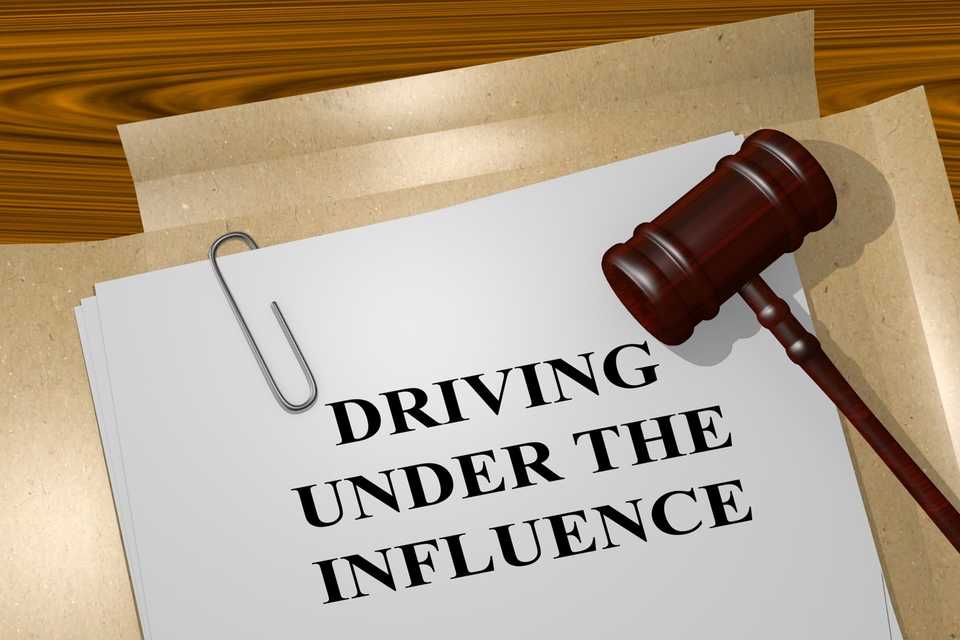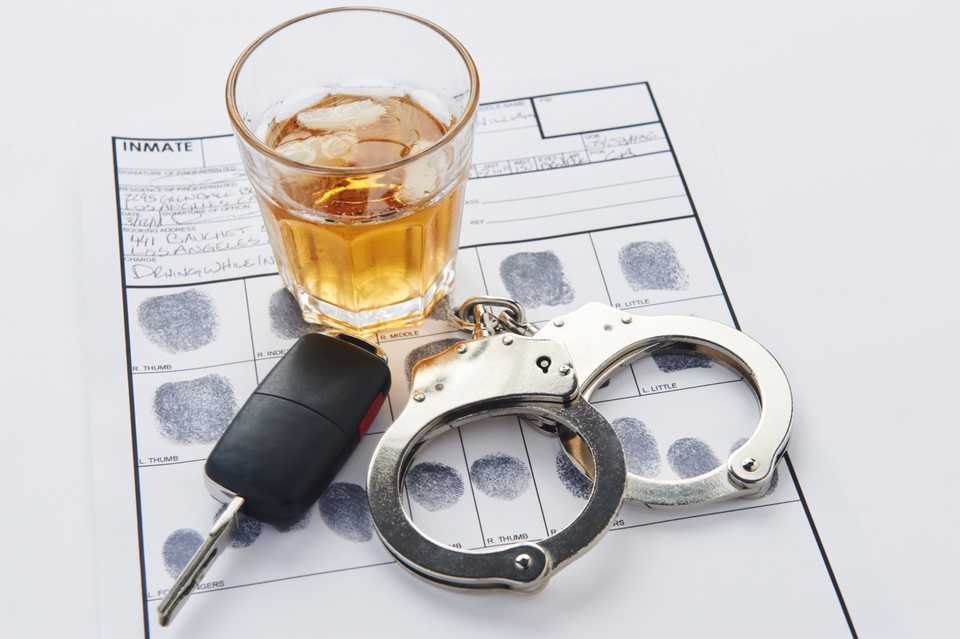An impaired driving conviction can result in significant consequences that affect many areas of a person's life, including their driving privileges, employment, and personal reputation!
In Ontario, understanding the legal blood alcohol concentration limits and the penalties associated with driving under the influence is crucial for avoiding these serious risks.
The laws surrounding impaired driving are strict, and the penalties for a conviction can be severe, ranging from fines and licence suspensions to imprisonment.

| In this article, JuriGo provides an in-depth explanation of DUIs in Ontario, as well as the importance of hiring a lawyer to navigate the legal complexities and mitigate the consequences of these charges. |
|---|
What is Driving Under the Influence in Ontario?
Driving under the influence (DUI) is a significant criminal offence in Ontario, defined under section 320.14(1) of the Criminal Code. It occurs when an individual operates a motor vehicle while impaired by alcohol, drugs, or a combination of both.
DUI laws are in place to prevent impaired driving, as it poses a serious risk to public safety, leading to accidents, injuries, and fatalities. The legal limits for various substances are clearly defined to ensure drivers are sober and capable of safely operating their vehicles.
Alcohol Limits
In Ontario, the legal blood-alcohol concentration (BAC) limit for drivers is 80 milligrams of alcohol per 100 millilitres of blood, which is equivalent to 0.08%. This means that if a driver’s BAC is measured at or above this level, they are considered legally impaired and can be charged with driving under the influence (DUI).
Cannabis (THC) Limits
Cannabis, or marijuana, is another substance that can impair a driver’s ability to operate a vehicle. In Ontario, the legal limits for cannabis (THC) in the blood are clearly outlined. If the amount of THC in a person’s blood is between 2 and 5 nanograms per millilitre (ng/ml), it is considered a less serious offence.
However, if the level exceeds 5 ng/ml, it is regarded as a more severe offence, leading to stricter penalties.
Alcohol and Cannabis Combined Limits
In situations where both alcohol and cannabis are present in the driver’s system, the law sets combined limits to prevent impaired driving. The legal limits for the combination of alcohol and cannabis are 50 milligrams or more of alcohol per 100 millilitres of blood and 2.5 nanograms or more of THC per millilitre of blood.
Prohibited Drugs
In addition to alcohol and cannabis, the presence of other drugs in a person’s system is also prohibited while driving. Various substances, including both legal and illegal drugs, can impair driving abilities. Some of the substances that are strictly prohibited within two hours of driving include:
- Lysergic Acid Diethylamide (LSD)
- Silocybin and Psilocin (magic mushrooms)
- Ketamine
- Phencyclidine (PCP)
- Cocaine
- Methamphetamine
- 6-MAM (a heroin metabolite)
- Gammahydroxybutyrate (GHB)
Each of these drugs can have different effects on a person’s cognitive functions and physical coordination, increasing the risk of accidents and unsafe driving.
For example, LSD and psilocybin can alter perceptions, while substances like cocaine and methamphetamine can cause overstimulation or erratic behaviour. The presence of these drugs in the bloodstream is prohibited, and the penalties for violating these laws can be severe.

One particular substance to note is GHB (Gammahydroxybutyrate), which is also banned for drivers. The legal limit for GHB in the blood is 5 milligrams or more per liter. GHB is a central nervous system depressant, and its presence can impair motor functions and judgment, posing a serious risk to road safety.
What Are the Consequences of a DUI Conviction in Ontario?
In Ontario, driving under the influence is considered a serious criminal offence that can have long-lasting consequences for the individual involved. The penalties for DUI are meant to deter individuals from impaired driving, safeguard public safety, and promote responsible behaviour.
These consequences vary depending on the severity of the offence, prior convictions, and the level of impairment caused by alcohol, drugs, or both.
First DUI Offence
The penalties for a first DUI offence are severe and aim to emphasize the importance of responsible driving.
| Consequences | Explanation |
|---|---|
| Financial penalties | A first-time offender faces a minimum fine of $1,000, though this amount increases based on the individual’s blood-alcohol concentration (BAC). The BAC limits are as follows:BAC between 80 and 119 mg per 100 ml of blood results in a fine of $1,000.BAC between 120 and 159 mg per 100 ml carries a fine of $1,500.BAC of 160 mg or more per 100 ml results in a fine of $2,000. |
| Criminal record | A DUI conviction leads to a criminal record in Ontario, which can have serious long-term effects on an individual’s personal and professional life. A criminal record may make it difficult to secure employment, travel, or obtain certain licenses. |
| Licence suspension | In addition to the financial penalties, individuals convicted of DUI face a mandatory driver’s license suspension for at least one year. This suspension severely limits a person’s ability to drive legally, which can affect work and daily responsibilities. |
| Imprisonment | Depending on the circumstances of the DUI, including any accidents or injuries caused, a first-time offender may face a prison sentence of up to 10 years. Imprisonment becomes more likely if the offence involved significant impairment or harm to others. |
| Ignition interlock device | The installation of an ignition interlock device in the offender’s vehicle is another mandatory penalty. This device prevents the vehicle from starting unless the driver provides a breath sample showing that they are sober. The ignition interlock device must remain in place for at least one year. |
| Education or treatment programs | Offenders may also be required to attend alcohol or drug treatment programs to address the root causes of impaired driving behaviour. These programs are intended to help the individual better understand the dangers of impaired driving and to promote long-term rehabilitation. |
In summary, the penalties for a first DUI offence in Ontario include a fine, criminal record, licence suspension, possible imprisonment, mandatory education or treatment programs, and the installation of an ignition interlock device for at least one year.
Second DUI Offence
A second DUI offence within 10 years carries significantly harsher consequences. The penalties escalate in order to reflect the seriousness of repeated offences.
- Financial Penalties: The fine for a second DUI offence remains at a minimum of $1,000. However, as with the first offence, the fine can increase based on the offender’s BAC level.
- Mandatory Jail Time: Offenders convicted of a second DUI offence face a mandatory minimum jail sentence of 30 days. If the offender’s BAC is 160 mg per 100 ml or higher, the mandatory jail time increases to 120 days.
- License Prohibition: In addition to jail time, individuals convicted of a second DUI will face a three-year prohibition from driving. This extended suspension can significantly impact personal and professional life, as the individual is prohibited from operating a vehicle during this period.
- Education or Treatment Programs: As with the first offence, offenders will be required to participate in educational programs or treatment designed to help them address the issues leading to impaired driving.
- Ignition Interlock Device: The installation of an ignition interlock device is mandated for at least three years following a second DUI conviction. The device ensures that the individual cannot operate their vehicle unless they have provided a breath sample that proves they are sober.

In summary, a second DUI offence carries a minimum fine, mandatory imprisonment, a three-year driving prohibition, mandatory education or treatment programs, and the installation of an ignition interlock device for at least three years.
Third DUI Offence
A third DUI conviction within 10 years carries the most severe consequences. At this stage, the individual’s disregard for the law is considered especially dangerous, and the penalties are designed to reflect this.
- Financial Penalties: While the financial fine for a third offence remains at a minimum of $1,000, the other penalties become far more severe.
- Mandatory Jail Time: The mandatory jail sentence for a third DUI offence is at least 120 days. This jail time can be extended if the circumstances of the offence warrant it.
- Lifetime License Suspension: One of the most severe penalties for a third DUI conviction is the lifetime suspension of the individual’s driver’s license. This lifetime ban can be reconsidered after 10 years, provided the individual demonstrates sobriety and participates in treatment programs. However, the individual must also prove that they are fit to drive before their license can be reinstated.
- Ignition Interlock Device: For third-time offenders, the ignition interlock device must remain in the individual’s vehicle for at least six years. This extended period reflects the seriousness of the individual’s repeated offences.
- Probation and Treatment Programs: In addition to the mandatory jail sentence and licence suspension, third-time offenders are often placed on probation. During probation, they are required to participate in alcohol or drug treatment programs, as well as refrain from consuming alcohol.
- Compulsory Medical Assessment: After the licence suspension, offenders are required to undergo a compulsory medical assessment to determine whether they are fit to drive again. This assessment ensures that individuals who have a history of substance abuse are not allowed to return to the road without demonstrating a commitment to sobriety.
In summary, a third DUI offence results in a minimum fine, mandatory jail time, lifetime licence suspension (which can be reconsidered after 10 years), the installation of an ignition interlock device for at least six years, probation with treatment programs, and a compulsory medical assessment.
The Role of a DUI Lawyer!
Facing DUI charges can have serious legal consequences, but a skilled DUI lawyer in Ontario can offer invaluable support. They guide individuals through the legal process while presenting strong defences that may reduce charges or even lead to a case dismissal. Understanding a DUI lawyer's responsibilities and the defences, they can offer is crucial.
Specializing in impaired driving cases, whether due to alcohol, drugs, or other substances, a DUI lawyer’s main task is to navigate the complexities of DUI charges and protect their client’s rights. Below is a breakdown of their key responsibilities:
Legal Expertise and Strategy Development
DUI lawyers possess specialized knowledge of the laws governing impaired driving, which are often subject to frequent updates and changes. They are well versed in the regulations, and procedures that police and courts must follow when handling DUI cases.
A DUI lawyer’s expertise allows them to thoroughly analyze the details of the case, from the circumstances surrounding the arrest to the evidence presented by the prosecution.

They will develop a personalized legal strategy based on the facts and legal nuances of the case. This strategy may include attacking the credibility of the evidence, challenging the legality of the arrest, or negotiating a plea deal.
Protecting Your Constitutional Rights
From the moment of your arrest, a DUI lawyer’s role is to ensure that your constitutional rights are not violated. This includes protecting your rights to remain silent, your right to consult with legal counsel, and your right to be informed of the charges against you.
A DUI lawyer is crucial in ensuring that the police respect these rights, as any failure to do so could result in the dismissal of the charges or suppression of key evidence. Your lawyer’s vigilance in this area can make a significant difference in the outcome of your case.
Investigating the Case
A crucial part of a DUI lawyer’s job is to conduct a thorough investigation into the details of your arrest. This may involve reviewing police reports, analyzing dashcam footage, and interviewing witnesses to identify inconsistencies or procedural errors that could weaken the prosecution’s case.
If there were mistakes made during the arrest, such as failure to read your rights or improper handling of evidence, your lawyer will identify these issues and use them to build a defence strategy.
Negotiating Plea Deals
In some cases, it may be in the best interest of the defendant to negotiate a plea deal with the prosecution. A DUI lawyer can serve as an intermediary, negotiating for a reduced charge or penalty in exchange for a guilty plea.
This can often result in lesser consequences, such as a reduced sentence or fewer restrictions on the defendant’s driving privileges. A lawyer will consider the strengths and weaknesses of the case, the likelihood of a conviction, and the potential for a more favourable plea arrangement.
Courtroom Representation
If the case proceeds to trial, the DUI lawyer will represent the defendant in court. This involves presenting evidence, making legal arguments, cross-examining witnesses, and challenging the prosecution’s case.
DUI lawyers have experience in presenting a compelling defence in court, often aiming to either secure a not guilty verdict or minimize the penalties associated with a conviction. Their knowledge of courtroom procedures and their advocacy skills are essential for achieving a positive outcome.
Client Support and Communication
DUI charges can be a stressful and emotional experience for the accused. Beyond their legal duties, DUI lawyers also offer support and reassurance during this difficult time. They help clients understand the legal process, answer questions, and keep them informed about the progress of the case.
Clear communication and emotional support are essential in helping clients navigate the complexities of the legal system with confidence!
Defences a DUI Lawyer Can Present!
When facing DUI charges, there are several defences a lawyer can present depending on the specific circumstances of the arrest. A skilled DUI lawyer will carefully assess all aspects of the case to identify potential weaknesses in the prosecution’s argument. Below are some of the most common defences that a DUI lawyer might employ:
Violation of the Right to Legal Counsel
Under Section 10(b) of the Canadian Charter of Rights and Freedoms, anyone arrested has the right to consult with legal counsel. If this right is not promptly granted or if the individual is prevented from contacting a lawyer, it can serve as a valid defence.
For example, if a police officer fails to inform the arrested individual of their right to a lawyer or obstructs their ability to contact a lawyer, any subsequent statements or evidence gathered could be deemed inadmissible in court. A DUI lawyer can use this violation to challenge the prosecution’s case.
Failure to Inform the Reasons for Arrest
According to Section 10(a) of the Canadian Charter of Rights and Freedoms, individuals must be promptly informed of the reasons for their arrest. If the police fail to explain the reasons for the arrest in clear, understandable language, this could be grounds for a defence.

For example, if a police officer arrests an individual for impaired driving but does not adequately inform them of the charge, the defendant’s rights may have been violated. This violation could render any evidence gathered during the arrest inadmissible and may result in the case being dismissed.
Improper Administration of Alcohol or Drug Tests
Breathalyzer tests, blood tests, and other forms of chemical testing are commonly used to determine blood alcohol content (BAC) or the presence of drugs in a driver’s system. However, these tests must be conducted according to strict protocols. If the testing procedure is flawed, it can lead to inaccurate results.
Common issues that can undermine the validity of a Breathalyzer test include:
- Malfunctioning equipment: If the Breathalyzer is faulty, it may produce inaccurate readings.
- Improper calibration: Breathalyzers must be calibrated regularly to ensure accuracy. If calibration is not done correctly, the results may be unreliable.
- Unqualified technician: The person administering the test must be properly trained and certified. If the technician is not qualified, the test results may be invalid.
- Improper testing intervals: Breathalyzer tests must be administered at specified intervals. Failure to follow this protocol could lead to inaccurate results.
A DUI lawyer can challenge the accuracy of these tests and argue that they should not be admitted as evidence, which can significantly weaken the prosecution’s case.
Unreasonable Delay in Proceedings
Section 11(b) of the Canadian Charter of Rights and Freedoms guarantees that individuals have the right to be tried within a reasonable time. If there is an unreasonable delay in bringing a DUI case to trial, the DUI lawyer can argue that the delay violates the defendant’s constitutional rights.
The Supreme Court of Canada has set a limit of 18 months for cases to be resolved, and if this timeline is exceeded, the lawyer can request a stay of proceedings. If the judge agrees, the charges may be dismissed.
Involuntary Intoxication
In some cases, a DUI lawyer may argue that the defendant was not voluntarily intoxicated. This defence typically applies when the defendant unknowingly consumed alcohol or drugs that impaired their ability to drive.
For example, if a person is unknowingly drugged or consumes a substance without realizing its intoxicating effect, the defence may argue that the individual should not be held responsible for their actions. This can be a difficult defence to prove but may be relevant in some situations.
Arrested for DUI in Ontario? JuriGo Can Help You Find a Lawyer!
If you've been charged with driving under the influence in Ontario, it's crucial to seek legal assistance. A DUI lawyer is essential in defending against these charges. With their expertise, they protect your rights, challenge the prosecution's case, and present defences that could lead to reduced charges or an acquittal.
Whether questioning the legality of the arrest, reviewing test procedures, or negotiating plea deals, a DUI lawyer’s knowledge of DUI law is vital. For the best chance of a favourable outcome, working with an experienced DUI lawyer is key to avoiding severe consequences and ensuring your rights are defended throughout the process.

JuriGo provides a simple, fast, and free solution for finding a DUI lawyer in Ontario! Our service is confidential, free of charge, and requires no commitment.
Simply fill out our request form, detailing your situation, and we will promptly connect you with a DUI lawyer in your area. Get started on your defence quickly and easily with JuriGo!